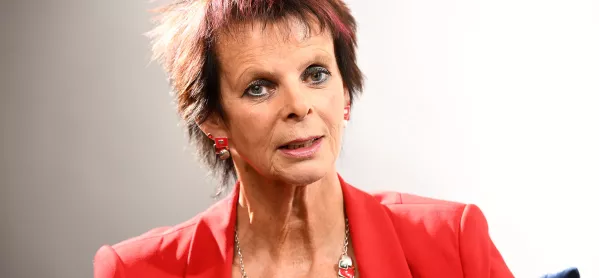- Home
- Government missing its own targets on apprenticeships
Government missing its own targets on apprenticeships

The vast majority of major Whitehall departments are failing to hit the government’s apprenticeship targets for public sector bodies, Tes can reveal.
The Department for Education is among 13 government departments that have fallen short of the target of having at least 2.3 per cent of their workforce comprised of apprentices, according to an analysis of responses to parliamentary questions.
Shadow skills minister Gordon Marsden said: “Despite all their rhetoric on apprenticeships, this government cannot even meet their own targets for employing apprentices”.
He added: “It’s particularly bad that the Department for Education hasn’t even met the target they preach to others”.
The written answers, published yesterday, reveal that the DfE recorded 107 apprenticeship starts in 2017-18 - which works out at just 1.7 per cent of its 5,960 workforce.
Slow progress
The worst performing ministerial department is the Attorney General’s Office. In a written response today to a parliamentary question, Robert Buckland, the solicitor general, said: “There are currently no apprentices in either the Attorney General’s Office or Her Majesty’s Crown Prosecution Service Inspectorate”. He added that while the Crown Prosecution Service has 183 apprentices, equating to 3.3 per cent of the workforce, the Government Legal Department has just 19 apprentices representing 0.84 per cent of its staff, and the Serious Fraud Office “currently does not have any apprentices”.
The Ministry of Justice admits that apprentices account for just 0.3 per cent of its 67,000-strong workforce - far short of the 2.3 per cent target. Justice minister Dr Phillip Lee said: “Plans are in place to deliver the target of 2.3 per cent of workforce undertaking an apprenticeship programme by the end of 2019-20”.
Other departments where apprentices make up less than one per cent of the workforce include the Home Office (0.46 per cent) and the Department for Digital, Culture, Media and Sport (0.7 per cent). Digital minister Margot James said: “We believe the department is making progress and will continue working to increase the number of apprentices”.
Mr Marsden commented: “The fact that in some departments fewer than one percent of staff are apprentices shows that this government is not committed to supporting the policy or supporting those who follow a vocational route in their education”.
Apprentices account for just one per cent of staff at Defra and 1.3 per cent of the workforce at both the Treasury and the Foreign and Commonwealth Office.
The proportions are little better at the Department for Transport (1.5 per cent), Department for Business, Energy and Industrial Strategy (1.6 per cent), Department of Health and Social Care (1.7 per cent) and Ministry of Defence (1.8 per cent).
The Ministry of Housing, Communities and Local Government and the Department for International Trade both fall just short of the target, with apprentices making up 2.2 per cent of their staff.
Apprenticeships target
Public sector bodies have a legal duty, established in the 2015 Enterprise Act, to “have regard” to the target. This means that they should consider apprenticeships, either for new or existing staff. According to the DfE, the target has been calculated to ensure that the public sector delivers its “fair share” of the 3 million apprenticeship starts the government has committed to by 2020.
The target came into force last April. Government departments and other public sector bodies have to send 2017-18 data on apprenticeships to the DfE by this September and, if they have missed the target, have to explain why and what steps they are taking to reach the quota.
Just three major departments have managed to meet the target - the Department for Work and Pensions (3.1 per cent), the Northern Ireland Office (2.8 per cent) and the Wales Office (six per cent).
Commons leader Andrea Leadsom, in her response to a parliamentary question, stated: “There are currently two apprentices who work in the Office of the Leader of the House of Commons that are employed by the Cabinet Office. They make up 22 per cent of the leader’s private office staff”.
The Scotland Office declined to provide data. Scottish secretary David Mundell said: “Due to the number involved, an estimate cannot be provide to protect the privacy and identity of individuals concerned”. Several ministerial departments have yet to respond to the parliamentary questions posed by members of Labour’s shadow education team. These include the Prime Minister’s Office, the Department for Exiting the European Union and the Cabinet Office.
A spokesperson for the DfE said: “In the 2017-18 financial year to date, there have been 107 apprenticeship starts at the DfE”. They added: “Public sector apprenticeships are helping us to deliver world class public services and opening up new opportunities for apprentices in a range of careers across the civil service. Everything from project delivery to human resources or the chance to work across a range of government departments.”
The Cabinet Office has been approached for comment.
Want to keep up with the latest education news and opinion? Follow Tes FE News on Twitter, like us on Facebook and follow us on LinkedIn
Keep reading for just £1 per month
You've reached your limit of free articles this month. Subscribe for £1 per month for three months and get:
- Unlimited access to all Tes magazine content
- Exclusive subscriber-only stories
- Award-winning email newsletters



